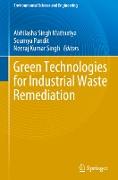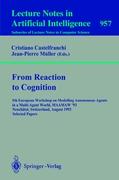- Start
- Green Technologies for Industrial Waste Remediation
Green Technologies for Industrial Waste Remediation
Angebote / Angebote:
This proposed book chapter is expected to provide the readers with wide aspects of green technologies for industrial waste remediation. The first chapter is dedicated to the introduction to the title of the book. The chapter discusses various green technologies for industrial waste remediation. After that, the second chapter emphasizes the different types of applications of microorganisms in industrial waste treatment. After that, chapters emphasize the specific area of the title, including the micro and nanofiltration technology for the treatment of industrial wastewater, methods for the recovery and removal of heavy metals from industrial effluents, algal photobioreactor technology for industrial wastewater treatment, carbon capture and energy recovery, bioremediation of radioactive wastes, membrane-based technologies for industrial waste management, valorization of agro-industrial wastes for biorefinery products, bioaccumulation and detoxification of metals through genetically engineered microorganism, application of biochar in waste remediation, constructed wetlands for industrial wastewater remediation, bioelectrochemical treatment of recalcitrant pollutants, microplastics, petrochemicals including BTEX, applications of biosorbents in industrial wastewater treatment, Microbial biofilm reactor for sustainable wastewater treatment, dye adsorption and degradation using microbial consortium, sustainable treatment of endocrine disruptive chemicals released from industries, biological nanomaterials for industrial wastewater management, vermifiltration as a natural, cost-effective and green technology for biomanagement of industrial wastewater, biocatalytic remediation of industrial pollutants, and green treatment of poly aromatic hydrocarbons released from industrial waste. All the chapters cover various aspects of sustainable management of industrial wastes covering relevant literature and data.Further, this book discusses the various advanced techniques/methods adopted for the enhancement of waste management, like the application of nanoparticles. This book discusses other related topics such as algal photobioreactors for carbon dioxide sequestration. Further, chapters are included to discuss about life cycle assessment of the wastewater treatment tools and commercialization aspects.
Folgt in ca. 15 Arbeitstagen



